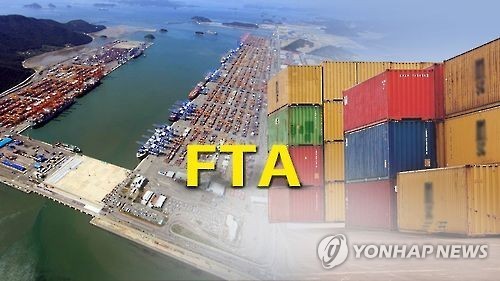South Korea continues to profit from its bilateral trade with the United States, but its trade surpluses largely come from outbound shipments of intermediate goods needed by US manufacturers to produce their own finished goods, making their trade both complementary and mutually beneficial, a report said Wednesday.
According to the report from the Korea International Trade Association, intermediate products accounted for 46.3 percent of overall South Korean exports to the US in 2015, when such goods accounted for only about 37 percent of the United States' total imports.
 |
(Yonhap) |
Such a high ratio of intermediate goods may indicate that South Korea was shipping items mostly needed by the US, it noted.
The report comes amid a move by the new US administration to consider imposing what it calls border adjustment tax, citing its country's chronic trade deficits with key trading nations, including South Korea.
The report, however, insisted trade balance must be viewed in terms of value added.
For instance, South Korea posted a trade surplus of $34.5 billion with the United States in 2014. However, its surplus in value-added trade came to $7.2 billion or only 20.8 percent of the total, far lower than those of other key trade partners with the US.
Japan's value-added trade surplus accounted for more than 30 percent of its overall trade surplus with the US in the same year, while that of China accounted for nearly 54 percent of the total, the report said.
"This means South Korea and the United States have complementary industrial structures, which in turn means South Korean exports to the US have a relatively less serious negative impact on jobs in the US," it said.
Still, the report noted a need for South Korea to increase added-value in its outbound shipments, adding added-value accounted for only about 63.3 percent of all South Korean shipments, compared with the US' 87.2 percent and Japan's 78.9 percent. (Yonhap)








![[Today’s K-pop] Blackpink’s Jennie, Lisa invited to Coachella as solo acts](http://res.heraldm.com/phpwas/restmb_idxmake.php?idx=644&simg=/content/image/2024/11/21/20241121050099_0.jpg)